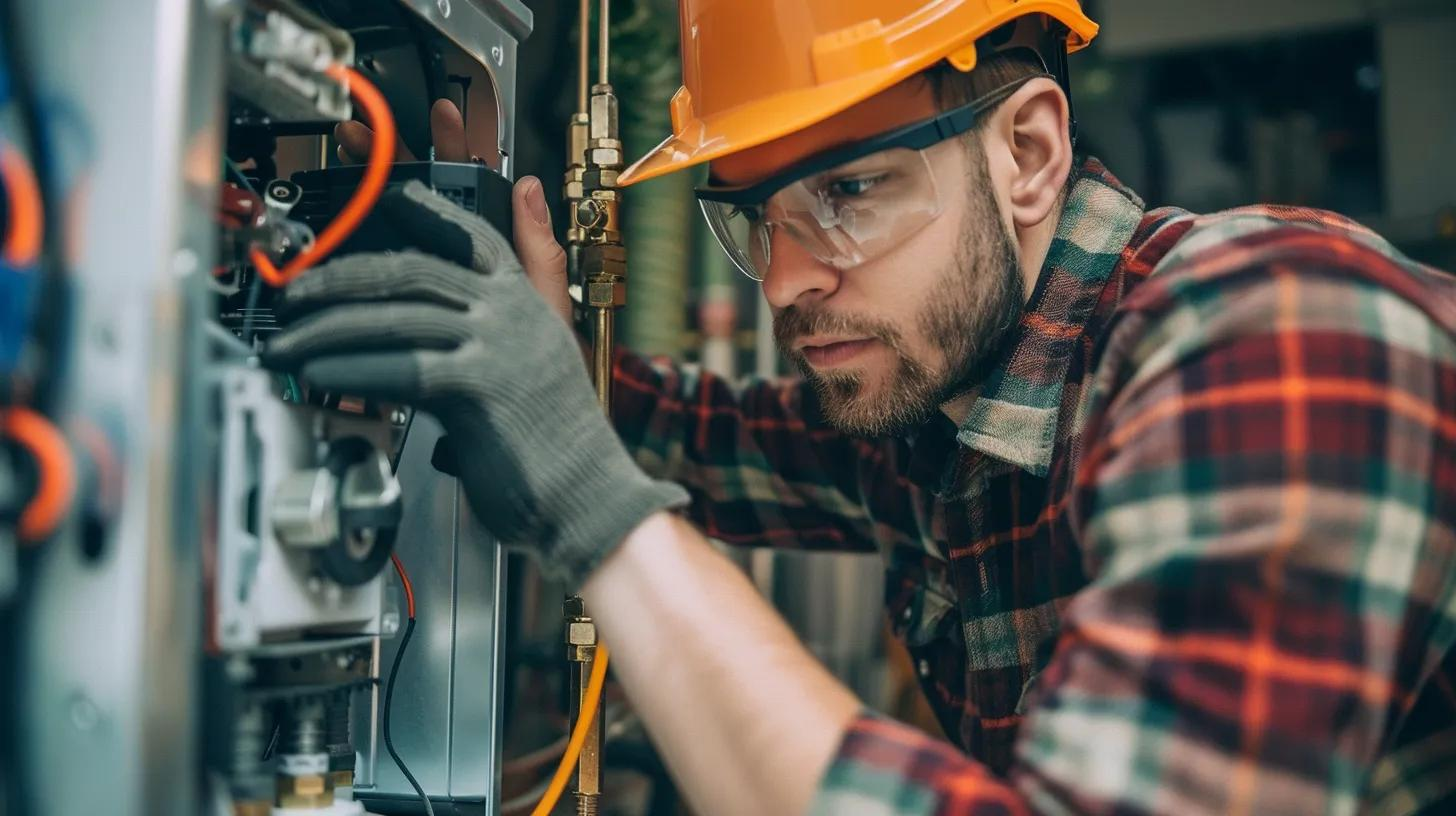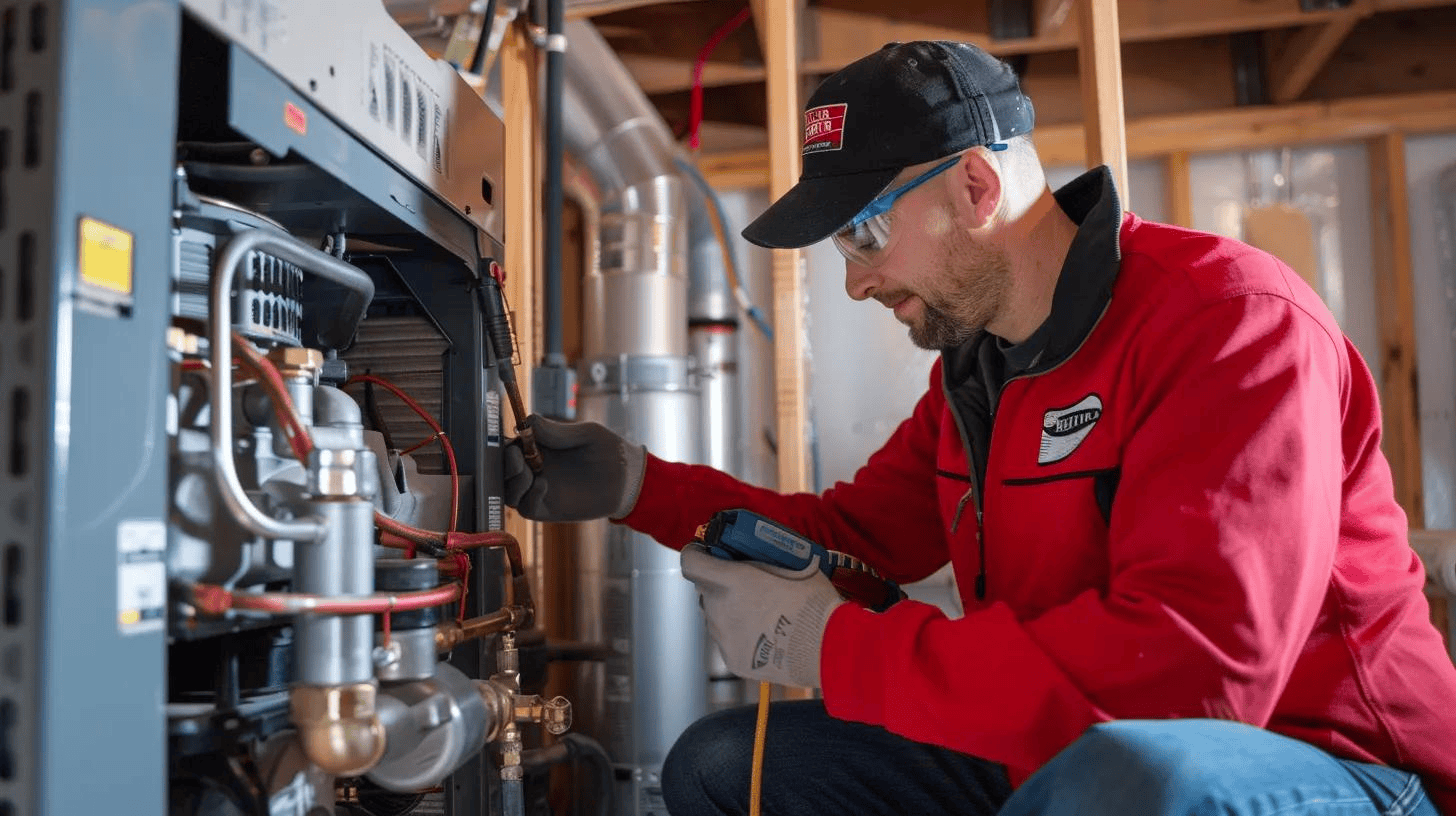Understanding HVAC Systems
That strange noise from the basement. A weird smell from the vents. A room that just won’t cool down. When your heating and cooling system acts up, it’s easy to feel a surge of anxiety. You’re not just worried about your family's comfort-you’re worried about safety, unexpected costs, and the hassle of a major repair.
Before you jump to conclusions, take a breath. Your HVAC system is communicating with you. Those symptoms are clues. This guide is designed to help you interpret them, moving you from confusion to clarity. We'll walk through a symptom-first approach-based on what you can actually hear, smell, and feel-to help you understand what's happening, what you might be able to fix yourself, and when it’s time to call a professional.
A Symptom-First Approach: What Is Your System Telling You?
Most online guides give you a list of technical problems like compressor failure or refrigerant leak. But you don't know if that's your problem-you only know that your AC is making a horrible screeching noise.
We’re going to work backward from the evidence. Let's decode the three main types of HVAC symptoms: strange noises, unusual smells, and problems you can feel with temperature and airflow. But first, the one thing you should always check.
The #1 Culprit: Always Check Your Air Filter First
Before you diagnose any complex issue, check your air filter. Industry-wide data is clear: a dirty or clogged air filter is the single most common cause of HVAC problems. It can restrict airflow, causing your system to overheat or freeze up, reduce efficiency, and put immense strain on critical components. A simple filter change can sometimes solve issues that seem far more serious.
Symptom 1: Strange Noises (And What They Mean)
Sudden or persistent noises are your system’s most direct way of telling you something is wrong. Ignoring them can lead to a minor issue turning into a catastrophic failure.
Banging or Clanking
A loud bang, especially when the system kicks on or off, is startling.
- Likely Causes: This often points to a loose part, like a connecting rod or piston pin inside the compressor. It could also be an issue with the blower assembly. In a gas furnace, it could be delayed ignition, where gas builds up before it lights.
- DIY vs. Pro Verdict: Check that all exterior panels on your indoor and outdoor units are secure. If the noise is clearly internal, turn off the system immediately and call a professional. A loose compressor part can destroy the entire unit if left to run.
Clicking or Ticking
You’ll often hear soft clicking as a system starts up or shuts down, which is normal. Persistent clicking is not.
- Likely Causes: Constant clicking can signal a failing thermostat, a defective control board, or an electrical issue.
- DIY vs. Pro Verdict: You can try replacing the batteries in your thermostat first. If the clicking continues, especially if the system won't start, it's a job for a technician. Electrical component diagnosis is not a safe DIY task.
Buzzing or Humming
A low, steady buzz is often electrical in nature.
- Likely Causes: Buzzing can come from loose parts, a failing condenser fan motor, or problems with the contactor relay switch. Sometimes it points to the start of a motor failure.
- DIY vs. Pro Verdict: Due to the high probability of an electrical fault, it's safest to have a professional diagnose any persistent buzzing. An experienced technician can pinpoint the source and prevent a more dangerous failure.
Screeching or Squealing
This is a high-pitched, metallic sound that’s impossible to ignore.
- Likely Causes: This agonizing sound almost always points to a serious mechanical problem. The most common culprits are a failing blower motor or an issue with the motor bearings in either the indoor or outdoor unit.
- DIY vs. Pro Verdict: This is an urgent cry for help. Turn off your system immediately to prevent the motor from seizing completely. This requires an emergency repair service.
Symptom 2: Unpleasant Odors
Your nose is a powerful diagnostic tool. Never ignore a strange smell coming from your vents, as some can indicate a serious safety hazard.
Burning Smell
- Likely Causes: There's a difference here. If you smell it the first time you turn on your heat for the season, it's likely just dust burning off the heat exchanger—it should dissipate within an hour. A persistent, acrid smell like burning plastic or hot metal points to an overheating motor or an electrical short.
- DIY vs. Pro Verdict: If the smell is sharp and persists, turn off your system at the circuit breaker and call for service immediately. An electrical fire is a serious risk.
Musty or Moldy Smell
- Likely Causes: That "dirty sock" smell is a classic sign of mold or mildew growing in your system. This happens when moisture collects in the drain pan or on the evaporator coils and doesn't drain properly.
- DIY vs. Pro Verdict: You can check the condensate drain line near your indoor unit to see if it's clogged. However, if the smell is established, you likely need a professional cleaning of the coils and drain pan to fully eradicate the source. Our maintenance plans include this kind of deep cleaning.
Rotten Egg / Sulfur Smell
- Likely Causes: This smell has one primary cause: a natural gas leak. Gas providers add a substance called mercaptan to make leaks detectable.
- DIY vs. Pro Verdict: This is an emergency. If you smell rotten eggs, do not operate any electronics, do not turn lights on or off, and do not try to shut down your furnace. Leave your home immediately, and then call your gas utility's emergency line from a safe distance.
Symptom 3: Problems You Can Feel
Sometimes the problem isn't a sound or a smell, but a simple lack of comfort.
System Blows Air, But It's Not Hot/Cold
This is one of the most frustrating failures-the system seems to be running, but it's not doing its job.
- Likely Causes: In an AC unit, this often points to low refrigerant or a failing compressor. It's critical to understand that refrigerant isn't "used up" like gasoline; low levels mean you have a leak. For a furnace, it could be an extinguished pilot light or a problem with the gas supply.
- DIY vs. Pro Verdict: After checking the thermostat settings and filter, this requires a certified technician. Handling refrigerant requires EPA certification, and diagnosing a furnace's combustion system requires specialized training.
Weak or No Airflow
- Likely Causes: The first and most likely culprit is, again, a severely clogged air filter. If the filter is clean, you could be dealing with a failing blower motor, blocked vents, or leaky ductwork.
- DIY vs. Pro Verdict: First, replace your filter and walk through your home to ensure all supply and return vents are open and unblocked by furniture. If airflow is still weak, you need a professional to inspect the internal components and your ductwork.
House Heats or Cools Unevenly
- Likely Causes: Hot and cold spots are often caused by issues beyond the HVAC unit itself. The system may be improperly sized for your home, or you may have leaks in your ductwork that are sending conditioned air into your attic or crawlspace instead of your rooms.
- DIY vs. Pro Verdict: This isn't a simple fix. It requires a comprehensive assessment from a professional who can analyze airflow, test duct integrity, and evaluate your home's entire thermal envelope.
You've Identified the Symptom. What's Next?
Understanding these signs is the first step. Now you can make a confident, informed decision. For many of these issues, especially those involving electrical components, refrigerant, or gas, the safest and most effective solution is to call a trusted professional.
To feel even more prepared, here’s what you can do before your technician arrives:
- Know the Symptoms: Be ready to describe the noise, smell, or feeling clearly.
- Note the System's Age: Most HVAC systems have a lifespan of 10-15 years. This context is crucial for deciding between a significant repair and a full replacement.
- Check the Model Number: If you can safely access it, having the model number of your indoor and outdoor units can speed up the process.
- Clear the Area: Ensure there's a clear, safe path for the technician to access your equipment.
Frequently Asked Questions
How often should I really change my air filter?
For most 1-inch filters, every 1-3 months is a good rule. If you have pets, allergies, or live in a dusty area, check it monthly. A clean filter is the cheapest insurance for your HVAC system.
Is it worth repairing an older HVAC system?
If your system is over 10-15 years old and requires a major repair (like a new compressor or motor), it's often more cost-effective in the long run to invest that money in a new, high-efficiency system. You'll gain reliability and significantly lower your monthly energy bills.
Why did my energy bill suddenly spike?
A sudden, unexplained increase in your utility bills is often the first sign of a struggling HVAC system. A dirty filter, low refrigerant, or a failing component forces the unit to run longer and harder to achieve the same temperature, consuming much more energy.
Can I fix a refrigerant leak myself?
No. Handling refrigerant is regulated by the EPA and requires special certification and equipment. More importantly, simply adding more refrigerant without fixing the leak is a temporary, ineffective, and environmentally irresponsible fix. An expert needs to find and repair the source of the leak first.
When your comfort and safety are on the line, having a clear understanding of the problem makes all the difference. If your diagnosis points toward a problem that requires an expert hand, our team at ADI Heating and Air Conditioning is here to provide an honest assessment and a reliable solution. We've been serving Maryland and the D.C. area since 1998, building our reputation on trust and technical excellence. Get in touch with us for a clear diagnosis and a plan to restore your peace of mind.







